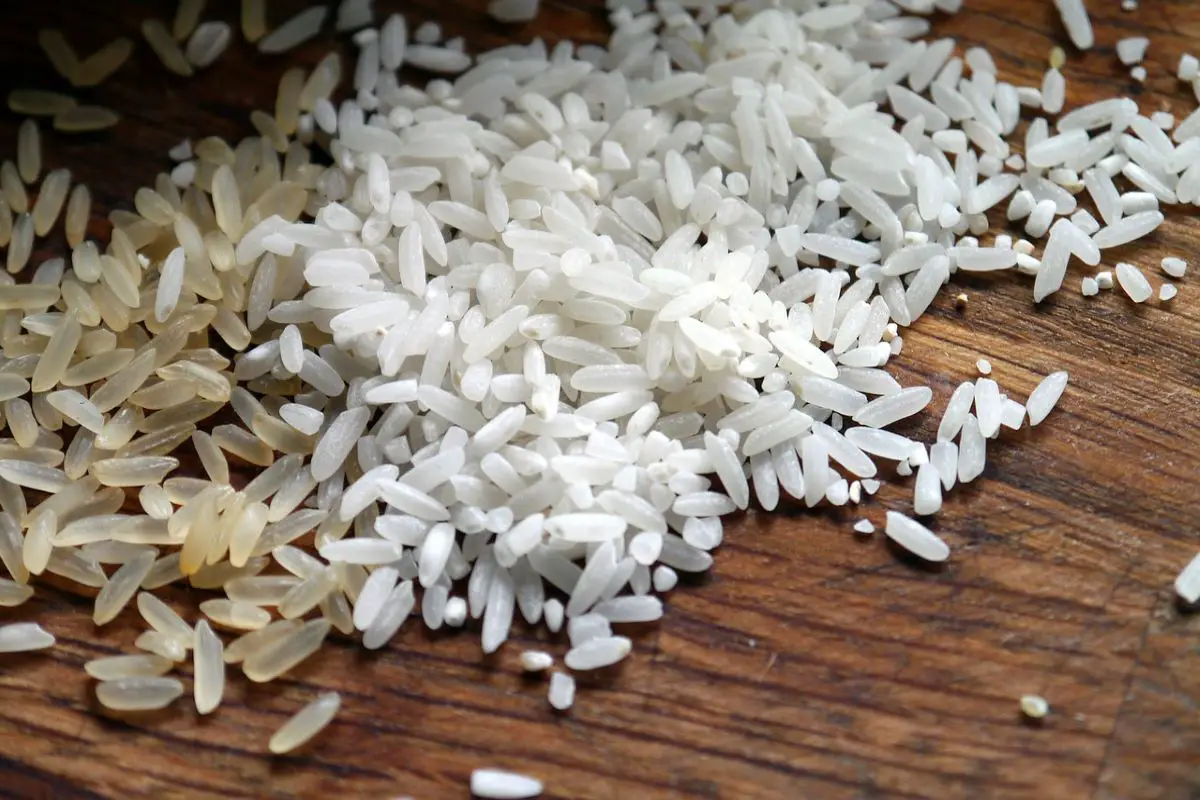Rice is an important food staple in many parts of the world. It is also a very long-shelf-life food, so it makes sense to consider long-term storage of rice. Although rice tends to be a low priority item when planning your survival food stash, it could become an important item if you were to ever find yourself without modern conveniences for an extended period. This could be in the wake of a devastating natural disaster or some other crisis.
The key to planning for long-term storage of rice is proper supplies and storing methods. Many people may think they already have all they need, but as we will see later in this article, there may be some factors that have not been considered and could lead to serious repercussions such as illness and death because they relied solely on their memory and that’s never a good solution.
If you choose to store rice in your pantry, look for a cool, dark place where the temperature stays about 70 degrees Fahrenheit or below. A basement works well if it’s not too damp. If you’re storing large amounts of rice, use food-grade plastic buckets with lids that seal tightly. You may also want to vacuum seal the buckets before storing them to remove as much air as possible and create an additional barrier against pests and moisture.
If your pantry isn’t dark enough or isn’t consistently cool enough, consider storing your rice in the freezer instead. White rice can be frozen indefinitely (although it will lose its fluffiness after six months). Store it in plastic bags inside a plastic bucket with a tight lid to keep bugs at bay.
Is It Better To Store Rice In Storage Containers?
In some cases, storing rice in storage containers is preferable. Storing rice in storage containers allows rice to be easily organized and stored in one place. For example, if a family has multiple types of rice, storing them in containers makes for easy organization and prevents confusion about what type of rice is being cooked. It also prevents the different types of rice from mixing and becoming one big mess.
However, there are some drawbacks to storing rice in containers. If the container isn’t airtight, the rice can lose its flavor over time or become dry and brittle, making it useless for cooking. In addition, if multiple people store their rice in the same container, there is a danger that they may mix up their rice with someone else’s and end up with the wrong kind of rice when they go to cook it, which could lead to fights between family members or friends who have mixed up their rice.
Are Mason Jars Effective For Storing Rice?
There are many reasons Mason jars are a beloved staple of the kitchen and crafting supplies. They’re inexpensive, versatile, and give you a sense of nostalgia for simpler times, as if you were living in an old farmhouse (even if you’re living in a tiny apartment).
But can mason jars be used for everything? Are they effective for storing rice?
It’s an interesting question. On the one hand, it would work: Mason jars are made from clear glass, with a sturdy lid that provides an airtight seal when screwed on properly. The outside of the jar is smooth, and it can be washed thoroughly after each use.
But on the other hand, many sources online say Mason jars aren’t a good option for storing rice: They claim that the high moisture content in rice will cause the jar to break or crack over time. While you might get away with it once or twice, they claim it’s not something to make a habit of.
In our view, this is an overreaction! We’ve been using Mason jars to store rice for years with no problem. It’s super easy to wash out the inside of the jar and keep it clean.
Are Mylar Bags Effective for Storing Rice?
Mylar bags are effective for storing rice. They are used by large companies and individuals alike to keep rice fresh and intact for long periods.
We used to use the same kind of plastic Tupperware you can buy at any department store to store rice, but we noticed that the grains were too compact in the Tupperware, and we had a hard time getting them out of the containers when we went to cook them. We switched to Mylar bags almost ten years ago and have never looked back.
Are Food-Grade Buckets Effective for Storing Rice?
Food-grade buckets are effective for storing rice, as they have many of the same properties that rice needs to be kept in. The following are the most important qualities a bucket should have to be effective for storing rice:
- It should be moisture-proof and airtight.
- It should be opaque because light reduces the shelf life of most foods—in the case of rice, light can cause it to produce harmful amounts of toxins like chlorophyll.
- Ideally, it should be made from a material that does not react with chemicals or foodstuffs.
However, it is advisable not to use food-grade buckets for long-term storage. We recommend using them only for shorter periods (no longer than a couple of years).
Can All Rice Be Stored Long Term?
Yes, all rice can be stored long-term, but some can be stored longer than others. White rice is usually the best choice for long-term storage because it keeps its flavor and has a higher nutritional value than brown rice.
Brown rice is also a good choice, but its lower nutritional value and more complex flavors mean it’s not a good choice for long-term storage. Basmati rice and jasmine rice are too complex in flavor to store well for the long term; although they are both very popular choices for short-term storage.
When you’re storing rice for the long term, you’ll want to make sure that you store it in airtight containers. This will help keep moisture out of the container so that the rice does not become dry or stale. You’ll also want to ensure that your containers are clean and free from any contaminants or pests before you put them into storage. You should also avoid placing your containers in any areas where they might be exposed to light or heat; these elements can cause the rice to degrade faster than it otherwise would have been able.
Conclusion
The rice must be packaged in an airtight container such as a glass jar for long shelf life. If you choose to use a metal container such as a metal can, do not store it near where you will keep your long-term food supply. Metal is highly susceptible to corrosion, and most metals are reactive with water. As the saying goes, one bad apple spoils the whole bunch! Once your rice is sealed, ensure that the lid is secured tightly. Label the outside of the container using a permanent marker.
You May Like These Articles As Well:
 Being Human
Being Human




